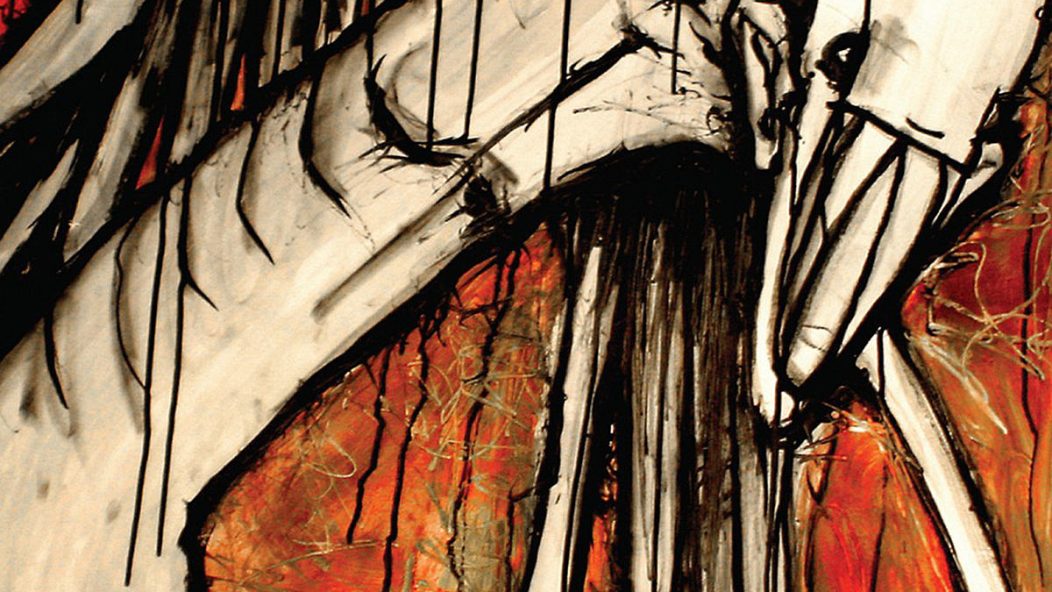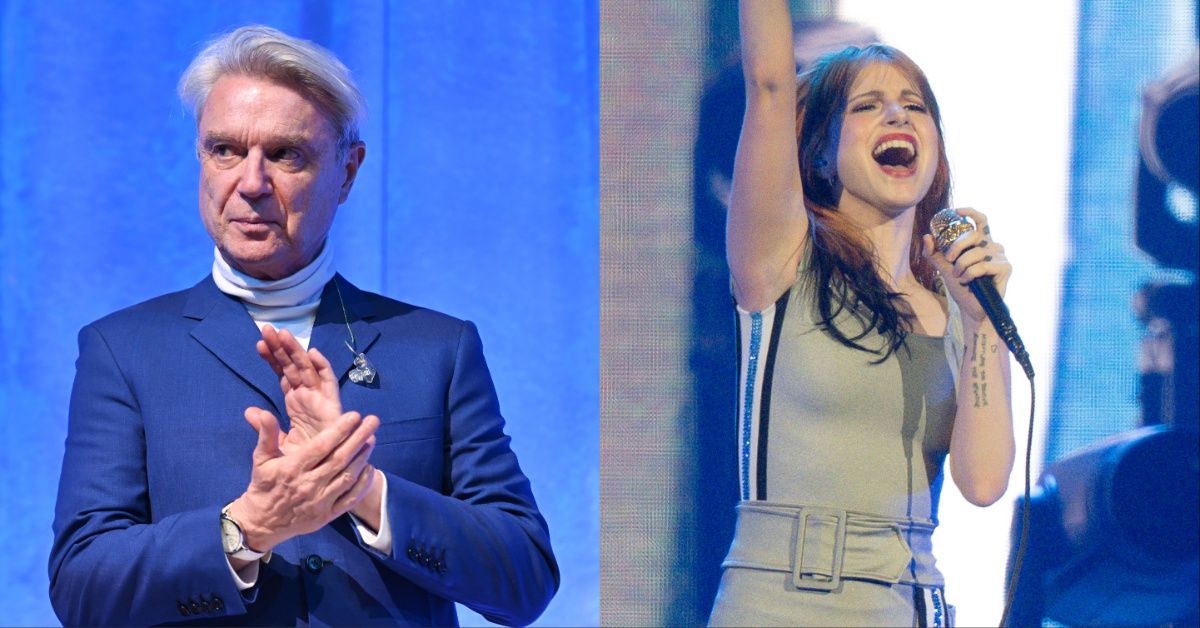
Halo in a Forever Sky: Converge 1990 - 2001
…
Let it never be said that Converge have ever been boring in their near three decades of raging and heartbreaking as the standard bearers of cacophonous, impassioned metalcore. A career-defining mountain of praise was heaped on the band in the wake of 2001’s Jane Doe, a work that still makes waves 15 years later. Among its accolades is the fine line it draws through Converge’s career, bisecting the oft labeled “pre-Jane Doe” and “post-Jane Doe eras. The latter is marked by a stark tonal shift, with much of the raucous, hyper-emotional bombast that defined their earlier works giving way to albums of conceptual vastness, confident experimentation and a refined, but still chaotic, maturity.
You Fail Me was a moving dirge of solitude while No Heroes was limber and laborious in equal measure. Axe to Fall boasted a heavy music fan’s wet dream worth of guest musicians, the presence of whom moved the Salemite quartet’s sound into sludgier, more pensive territory. All We Love We Leave Behind played like a modern Converge record would; a mixture of hardcore calamity and post-metal calm punctuated by tangible sentiment. These albums are mentioned often when ranking or praising Converge’s best, at least to those not dyed-in-the-wool fans, unaware or negligent of their earlier outputs. Let this serve as a high recommendation. To the diehards, the ones who reached for the sun before budding gravestones soared, here’s a bit of that farewell note returned.
Having retained the same lineup since touring in support of Jane Doe, Converge have had a sturdy foundation to build upon since 2001. In the ten-year span prior, when now sole remaining original members Jacob Bannon and Kurt Ballou were just wicked mad New Englanders, Converge’s base was just developing. Their first album, Halo in a Haystack (later reissued in some capacity as Caring and Killing) was a clear work of musicians finding their place in an emerging metalcore landscape — but even this early on, in 1994, they had already begun carving their niche.
…
…
The most underrated of their catalogue, Halo, is a raw, almost pure hardcore record, with flairs of characteristic tumult peppered throughout as a reminder of what would be. Among Converge’s best songs are those with moments of fleeting beauty, with a more recent example being the last five arduous seconds of “Hanging Moon.” Halo‘s “Two-Day Romance” features such a moment, where the guitars break from their grating mourning to a spidery elegance at the song’s midpoint. It’s a track that concisely demonstrates exactly what Converge is and has always been: a hardcore band deftly painting with all things in life foreboding and alluring.
…
…
Petitioning the Empty Sky was the band’s first true game-changer, the collection where their sound emerged from their teenage angst and sonic searching like a phoenix in flight. Collected from a handful of 7” records, Petitioning is both a sophomore and compilation album, but a staple nonetheless with the presence of continuing crowd pleaser “The Saddest Day” as its opener. Converge began flirting with their fixation on schizophrenic tempo here and on “Color Me Blood Red,” blasting from trudging break to spastic solo with youthful grace. Combining sweeping melody and desperate vocals, “Dead” is cradled by a harrowing atmosphere that Converge weave into a dissonant classic. Replete with towering, wailing guitars that trade blows with quiet bass passages, “Farewell Note to this City” allows Bannon room to snarl, cry, and otherwise emote amid sudden, triumphant riding breaks. This track in particular is one of the more memorable and poignant entries of their 1990s catalogue.
…
…
Petitioning was no slouch in terms of brutality, but When Forever Comes Crashing renders it gentle by comparison. Converge is just plain mean, pissed and sick of shit on their third album. This is where they truly began baring their teeth. “My Unsaid Everything” sets that mood with urgency, suffocating you with its blistering riffs that incite its general unpleasantness — but that’s the point of this LP, to be savage. Converge’s progressive nature also reared its head for the first time here with tracks like “In Harms Way” and “The Lowest Common Denominator.” The latter track is the most sorrowful cut this band has produced, without equal as it opens into a suicidal expanse, its guitars raining miserable loneliness like a razor downpour. Melding instrumental violence with lyrical hope, “Love As Arson” is a template that has been repeated since, most notably on “The Broken Vow” and “Aimless Arrow” years later. Swinging a battle axe into every other Converge song’s face is “Conduit,” a monstrous offering cut in half by the nastiest of breakdowns. On a level of ferocity that no other track, save “Concubine,” has matched, even the most beatdown of beatdown bands has no business going toe-to-toe with it.
…
…
Oft-overlooked is Unloved and Weeded Out, a 14-song compilation gathering classics like the disconsolate “Downpour,” the mercurial “Home Song,” and the frantic “Tremor.” “For You” is a striking piece of churning bass and angelic riffing teeming with a forlorn tone. The Y2K EP is equipped with a legendary cover of The Cure’s “Disintegration,” in addition to covers of Black Sabbath’s “Snowblind” and Vio-Lence’s “Serial Killer,” but it’s their The Cure cover that serves as the centerpiece. Converge had long pushed their songwriting boundaries by 2000, but with “Disintegration” they took the original song as their own, drowning it in warm static and deliberate melancholy. As one of their longest tracks at the time, “Disintegration,” even as a cover, paved the way for later auricular murals like “Jane Doe” and “Wretched World,” with that connection explicitly made by way of its inclusion in Converge’s Roadburn Festival set in 2016.
Like any band, Converge’s earlier material was integral in building the cult-like following the band has accrued. Unlike most artists, however, the first half of their career holds up with the glowing praise showered on later releases. Their first three albums and everything in between are gutsy, spry and unwavering in their intensity, showing Converge the hardcore band, before they became simply Converge. Their legacy is daunting, with generations of metalcore inspired by their discography, but there’s comfort in knowing that there was a moment when they were just angry hardcore kids with leftover Slayer riffs that refused to fall down.
— Bruce Hardt-Valenzuela
…











